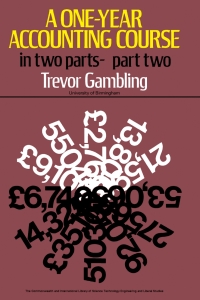Question
1. Davis Inc. purchased $1000 CHK bond at par. CHK bond pays 5% interest. Davis intends to hold the bonds until maturity, and has classified
1. Davis Inc. purchased $1000 CHK bond at par. CHK bond pays 5% interest. Davis intends to hold the bonds until maturity, and has classified them this way on the balance sheet. Interest rates declined so the trading price of the bonds increased by $20 from what Davis paid. What will Davis income statement look like?
- $50 interest to net income, $0 unrealized gain to comprehensive income
- $70 interest to net income, $0 unrealized gain to comprehensive income
- $50 interest to net income, $20 unrealized gain to comprehensive income
2. Warrens company, Berkshire Hathaway, is now the largest Coca-Cola shareowner. They own 13% of company. Warren has never sold a share of Coke stock, and swears he never ever will. How does he classify this investment on the consolidated balance sheet?
- Trading
- Available for sale
- Held to Maturity
3. DiamondX is a financial services firm with a proprietary trading desk. They act as brokers for mezzanine and convertible debt. They classify their bond holdings as trading securities on their balance sheet.
Unrealized capital gains will likely show up where?
- Netted with other interest expense on income statement
- Operating profit on income statement
- Unrealized gains in OCI
4. What is least likely to determine the balance sheet classification for investments under either U.S. GAAP or IFRS:
a. Historical purchase cost compared with unadjusted book value of the % interest purchased.
b. Influence vs. control
c. Percent of ownership of the investment
5. Which investment should not be characterized as an available-for-sale security?
a. Stocks and bonds that can be sold for liquidity purposes.
b. Debt securities that a company may want to hold to maturity.
c. 37% ownership in another firm.
6. David is doing a sum-of-parts analysis of a conglomerate. He thinks he would like to buy stock in this conglomerate and is trying to figure out the true value. The conglomerate owns controlling interests in many different businesses. David adjusts the balance sheet so all the assets reflect fair market value. He removes goodwill. He marks the liabilities to fair market value. He subtracts the adjusted liabilities from the adjusted assets to get the fair-market value of the equity for which he is considering an investment. He may end up overpaying for this because he is not accounting for:
- The positive value created by functional integration (synergy of different businesses)
- Minority interest
- Market premiums
Use this for questions 7-9
Amalgamated owns 30% of Gamco. The book value of the investment on December 31, 2001, is $40,000. In 2002, Gamco earned $100,000 and paid dividends of $23,333.34
7. The value of the investment account on December 31, 2002, is:
a. $63,000
b. $64,000
c. $116,666.66
8. Amalgamateds net income was $1,000,000. What might Amalgamateds cashflow statement look like for the above accounting period?
a.
Amalgamated Net Income $1,000,000
Gamco earnings -$30,000
Gamco dividend +$7,000
CFO $977,000
b.
Amalgamated Net Income $1,000,000
Gamco earnings -$30,000
Gamco dividend +$6,000
CFO $976,000
c.
Amalgamated Net Income $1,000,000
Gamco earnings -$30,000
CFO $970,000
Gamco dividend +$6000
CFF +$6,000
9. Amalgamated is a U.S. GAAP reporting company. If the company reported under IFRS, could the CFO be different?
- The CFO could be lower
- The CFO could be higher
- The CFO could only be the same
10. Which method of accounting for intercorporate investments presents leverage least fairly?
- held to maturity, passive investments
- equity-method investments
- consolidated investments
Step by Step Solution
There are 3 Steps involved in it
Step: 1

Get Instant Access to Expert-Tailored Solutions
See step-by-step solutions with expert insights and AI powered tools for academic success
Step: 2

Step: 3

Ace Your Homework with AI
Get the answers you need in no time with our AI-driven, step-by-step assistance
Get Started


